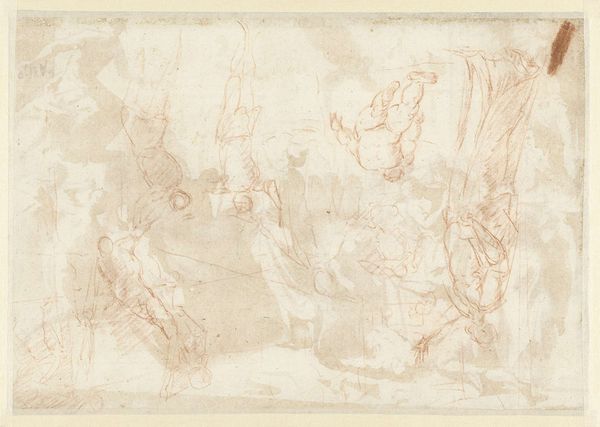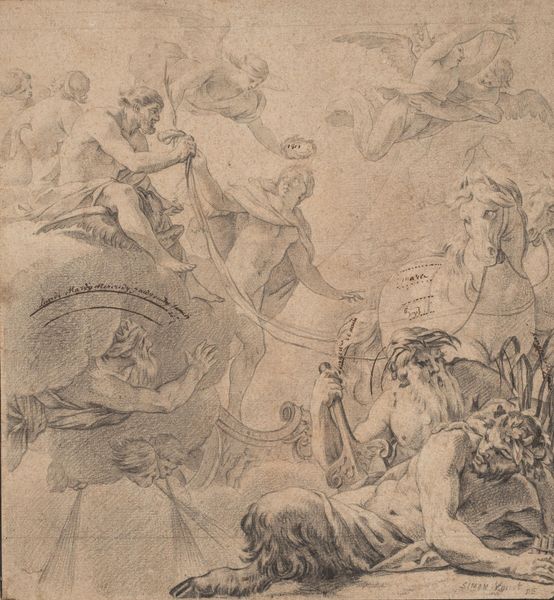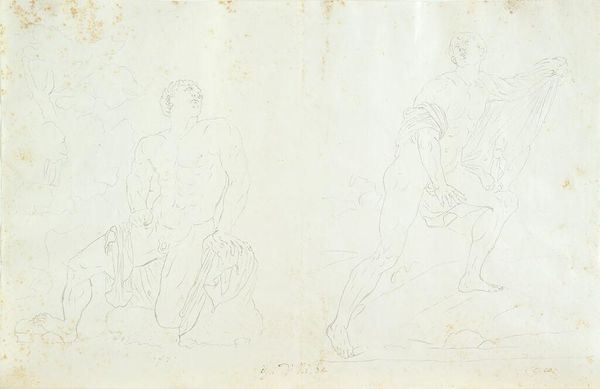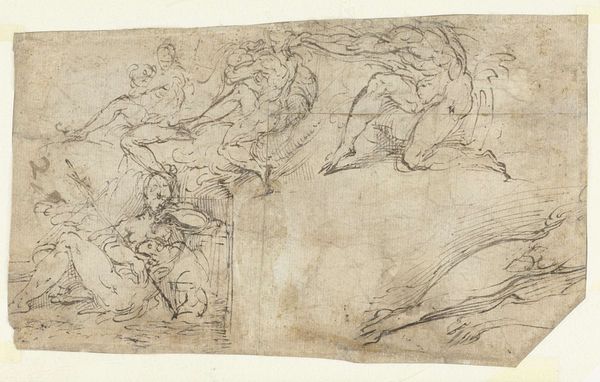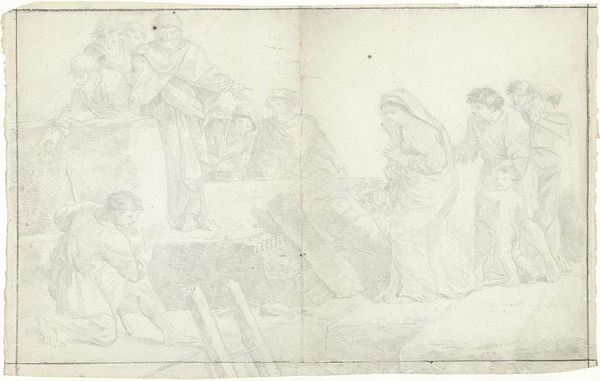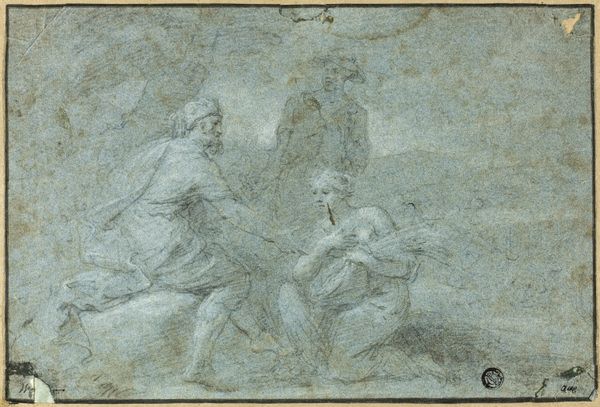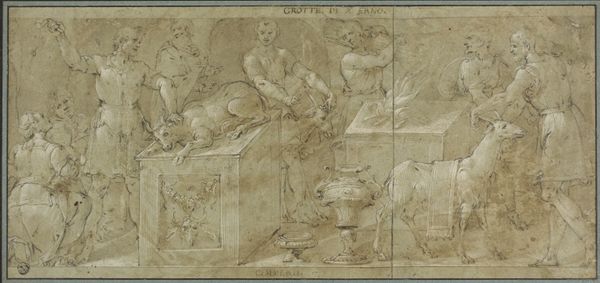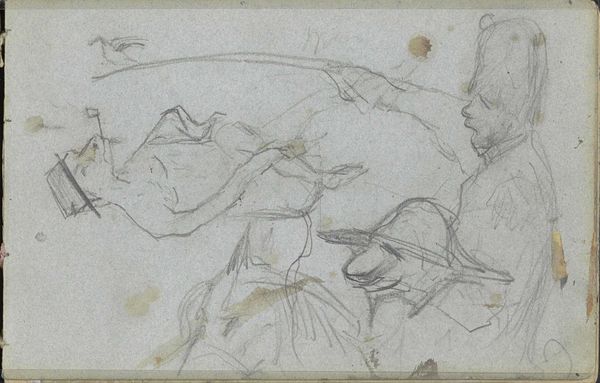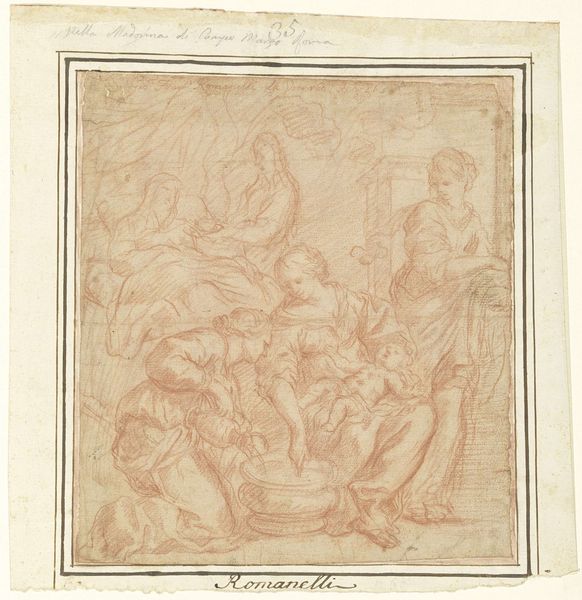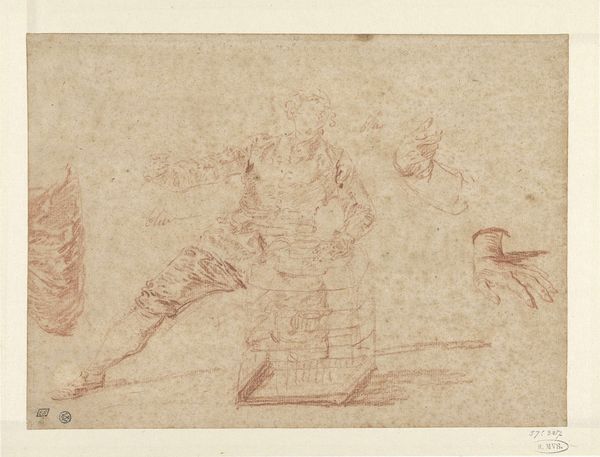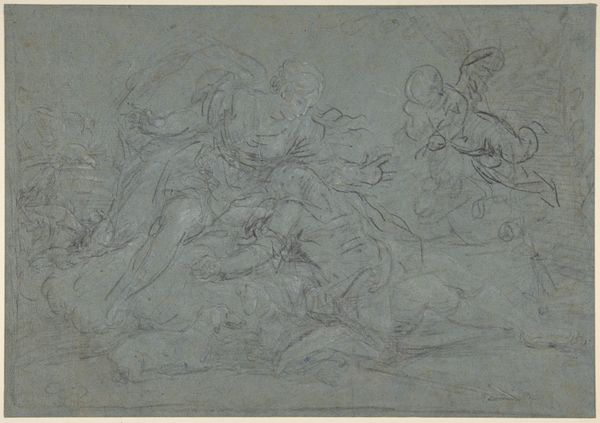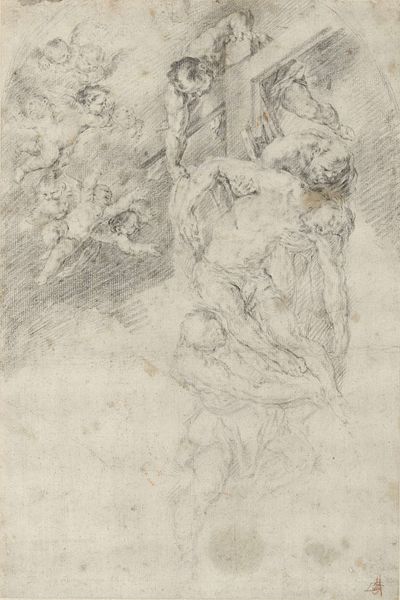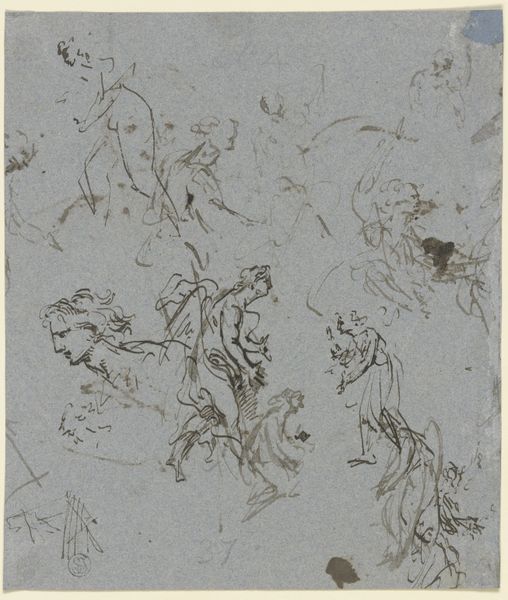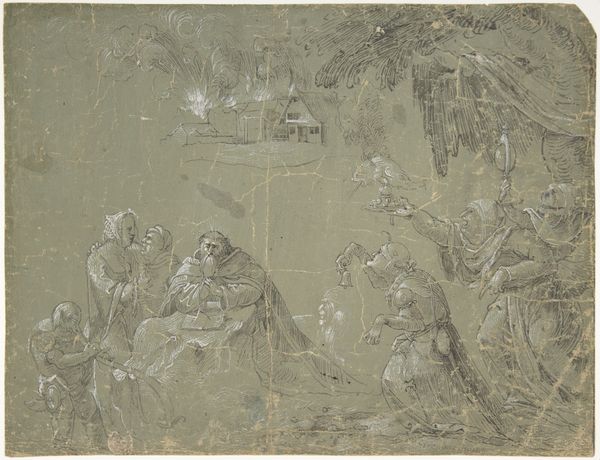
#
toned paper
#
light pencil work
#
incomplete sketchy
#
etching
#
personal sketchbook
#
ink drawing experimentation
#
sketchbook drawing
#
fashion sketch
#
sketchbook art
#
initial sketch
Dimensions: height 257 mm, width 188 mm
Copyright: Rijks Museum: Open Domain
Mattia Preti rendered this drawing of two seated figures and angels on laid paper in the 17th century. Drawings like these provided the foundation for the frescoes and altarpieces that Preti produced in Naples and Malta. Preti’s career took off in the decades after the Council of Trent, when the Catholic Church used art as propaganda to assert its authority. Religious imagery had to abide by certain rules and focus on the emotional impact on the viewer. This explains the dynamism of Preti’s art. He specialized in dramatic scenes with lively figures. As a historian, I would study the archives of the religious institutions that commissioned artworks from Preti. What were the specific requirements that Preti had to follow? And how did his patrons make use of his art to convey their message? These are the questions that help us understand the cultural work of art in the early modern period.
Comments
No comments
Be the first to comment and join the conversation on the ultimate creative platform.
